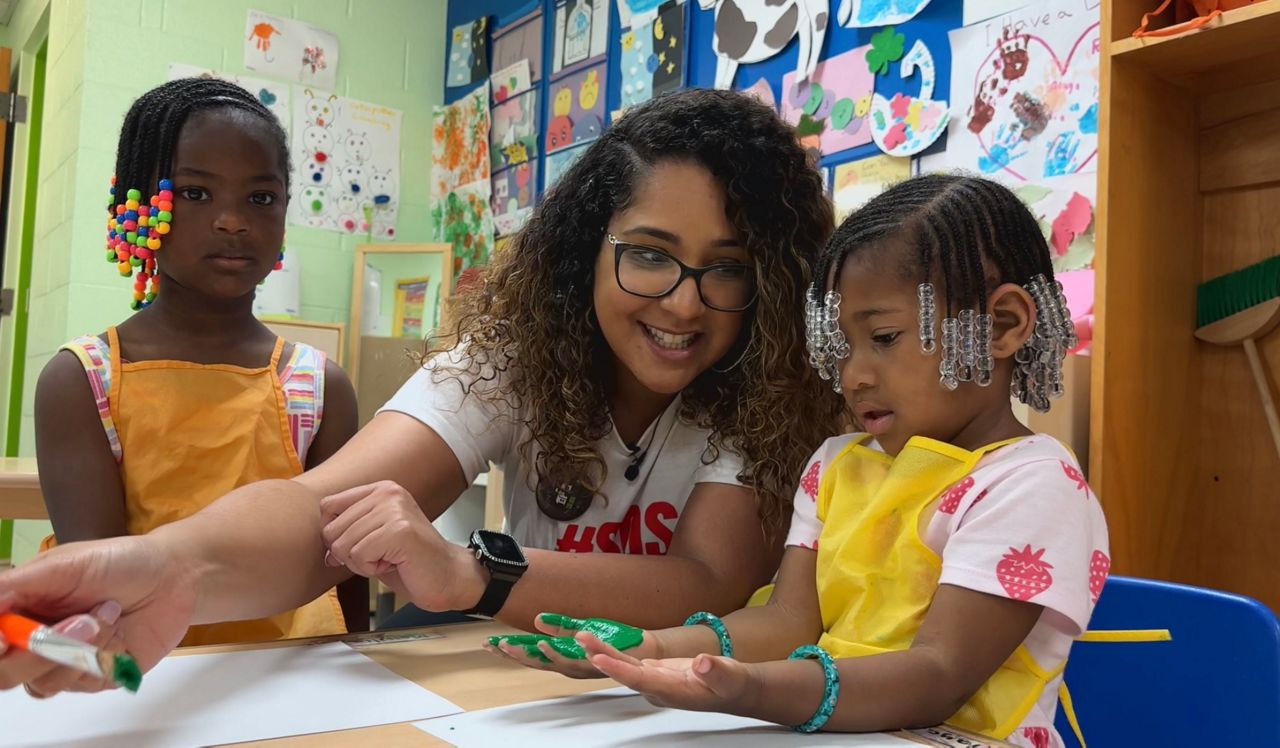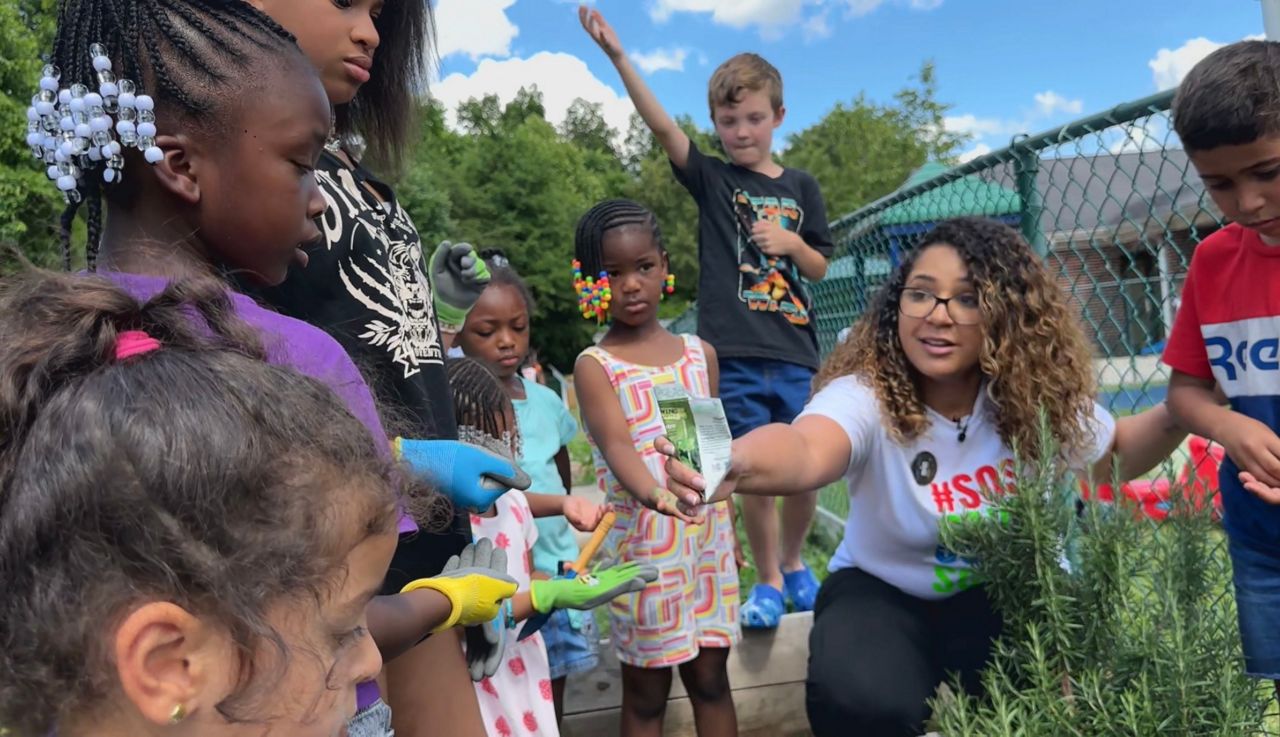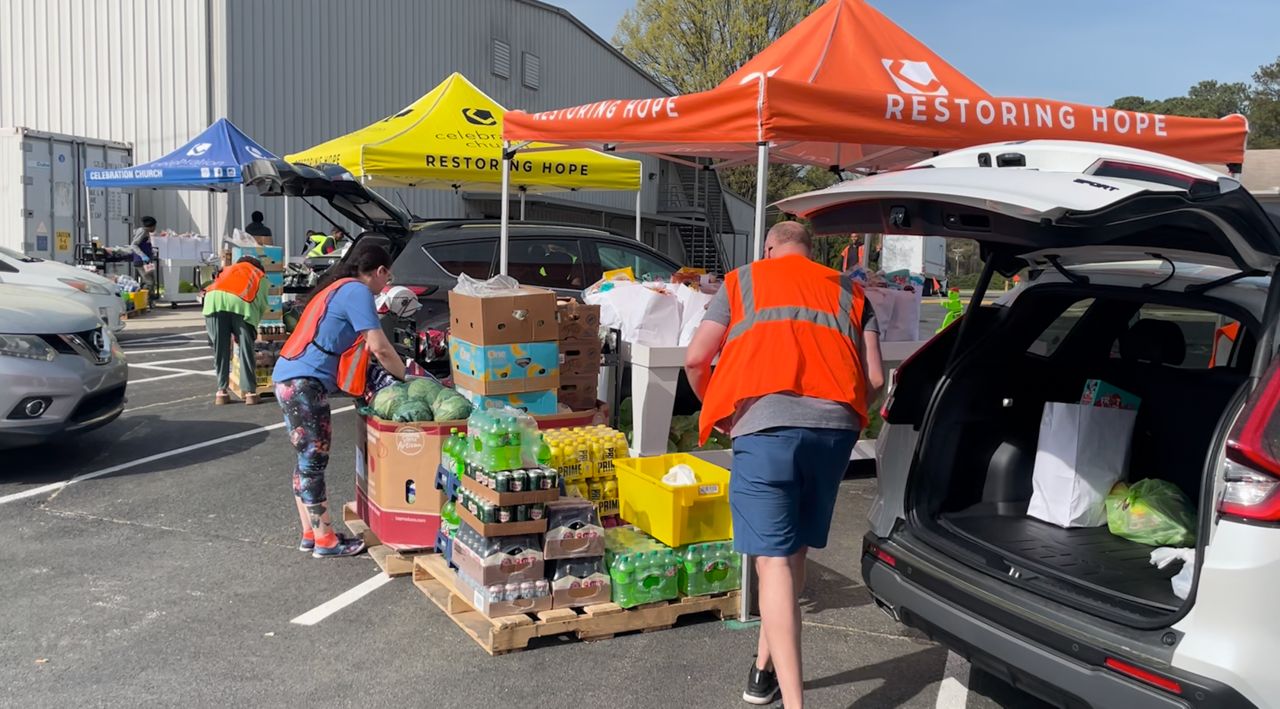HIGH POINT, N.C. — Thousands of child care centers across the state may close their doors at the end of June if actions aren't taken to help them stay afloat once pandemic era-funding comes to an end for them.
What You Need To Know
- Child Care Stabilization Grants ending may force centers to end their services
- The funding has been keeping these centers afloat, but teacher pay and other business expenses are putting them in limbo
- The funding ends in June with over 91,000 child slots at risk
- Betsy Rodriguez is going to fight for her business and others
Facilities will stop receiving funding from the Child Care Stabilization Grants, which went into place during the COVID-19 pandemic. Funding has already been cut down through the years.
The cost of child care is something Betsy Rodriguez learned from an early age after having her child as a teen mom.
“I had to take my daughter to schools in which she was one of 20 because that's what I was able to afford. So to be able to provide that opportunity in which we have small classroom settings, and we have the one-on-one with the children, that is the most important for their development and their growth,” said Rodriguez, the founder and director of KinderMission Foundation in High Point.

The mom was forced to work multiple jobs to pay for her child care, which at the time was $800 when she lived in South Florida.
In 2018, she opened the KinderMission Foundation, helping give families what she dreamed of having for her child.
“It’s priceless when you're able to see your children grow and to really develop and be prepared for the next level of education. I love early childhood education, because we are the underdogs when it comes to education,” Rodriguez said.
The legacy of what she has built may all soon be boarded up come the end of June.
“When families are required to stay within a certain income limit, then that keeps families in poverty and keeping families in poverty limits the resources that children can have,” Rodriguez said.
Although with the pandemic era funding is running out, these centers will be left on their own. According to a survey done in February by the North Carolina Child Care Resource and Referral Council, the result could be more than 1,500 child care facilities closing across the state, with over 91,000 child care slots to be impacted, possible teachers jobs lost and a chance for fees to be raised on parents.
“The issue is that in order to get the grant, we had to provide proof that we were increasing wages. So, we had to increase the wage in order to have the ability to prove to be able to get the right teachers into our programs. But guess what? We weren't paying those teachers what we couldn't afford then. So now, what we would have paid probably a $3 for dollar difference per hour, we are now acquiring that cost and stuck with the cost without the funding,” Rodriguez said.
She said her center was receiving, at one point, about $75,000 a quarter, or about $300,000 a year. Without this funding, she says they are not able to pay teachers the boosted paycheck they were promised with the grants.

“It is just not enough with salaries being what they are just being able to pay teachers at least $15 an hour. That's extremely expensive,” Rodriguez said.
She has already had multiple teachers leave, affecting parents who rely on these services, like Shanetta Williamson, an employee and parent of the center.
“It is very, very imperative that the school stays open. If it doesn't stay open, then that means where am I going to work? What am I going to do with my child when I have to go to work? Because we have to work. Inflation is extremely high, and it is so necessary that we are working and have somewhere for our kids to be,” Williamson said.
State leaders are looking to see if there are dollars to help offset this federal funding loss. Gov. Roy Cooper recommended funding in his budget proposal this year and legislative leaders say they are looking to see if it could at least be partially absorbed by the state. Lawmakers are also in the process of negotiating a spending plan and are expected to have recommendations in coming weeks.
Rodriguez says she has experienced all stages of grief, but takes it as a challenge, even looking to create a fund to help her business stay afloat and other centers who might need help.
“It's not a stop. It's a pause. I don't see my program ending, because this is my passion, and this is what I do. So it's a pause. If anything, if our program has to have a pause, but we're going to come back better, and it's really made us look at what we are facing to make things better. So I take this as a challenge. So they say, challenge accepted, and I think it just shows ... the resilience of our community. It shows the resilience of early childhood education. Our educators like we are just an amazing group of educators that are really making a difference. And I hope our voices are heard,” Rodriguez said.








